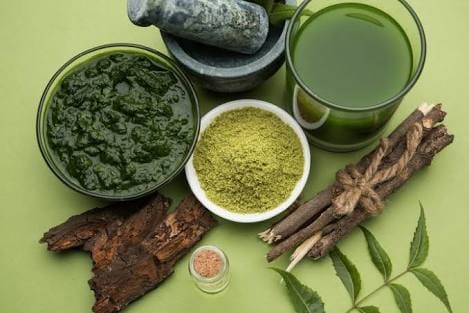One of the fondest memories of my maternal grandfather was watching him emerge from the nearby bush with herbs to treat a stomach upset or raging fever. He never attended a botany class but he was a revered medicine man whose herbal concoctions healed many ailments. He orally passed on a fraction of his vast knowledge to my aunty in Idoma– our indigenous language, as he did not speak English at all.
These days, my aunt attempts to pass down what is left of my Grandpa’s rich herbal knowledge, but we often interrupt her to inquire what certain herbs are called in English. This might seem excusable as most of us were born and raised in urban areas but this points to a glaring language barrier, which if not arrested, would eventually result in the loss of vast medicinal knowledge. I was excited to read what appeared to be a fleeting personal thought in a news report by Brazilian science journalist, Sofia Moutinho. The news story laments the near extinction of medicinal knowledge as indigenous languages die. To substantiate this, she shares the story of an ethnic group in Switzerland who are on the verge of losing a rich “… untranslatable spiritual knowledge of medicinal plants,” as the older generation passes on. The only surviving man from the tribe was said to be working hard to document all he knew but not everything can be translated.
Read Also: FCT community resorts to herbalists for healthcare
Quartz Africa reports that, between 1930 and 2016, a total of 37 out of the 230 extinct languages of the world were African languages and unfortunately, hundreds of others are listed as endangered. It is common to think of language as a component of culture without considering the body of biological information it ferried from generation to generation before science emerged or permeated our ways of life. Researchers opine that “most indigenous knowledge about medicinal plants is linked to threatened languages.” Adding that, “loss of languages poses more danger to medicinal knowledge than biodiversity loss.” Clearly, language in this case is not merely a vehicle for communication, it is also an instrument for continuity and a preservative for this rich body of knowledge.
It is easy to blame the vulnerability of indigenous languages on colonization, the selection of single (sometimes, foreign) official languages by governments, and the prioritization of western education. However, with more people trivializing indigenous languages, no amount of optimism can save us from recording a higher number of extinct languages in Africa and by extension, the world in a few years to come. If you can take a moment to think about all the beneficial medicinal knowledge that could be lost to that, you might begin to understand why we need to have this conversation.
No one puts it better than Rodrigo Cámara Leret, a biologist at the University of Zürich (UZH) –“Every time an indigenous language dies, it’s like a library is burning, but we don’t see it because it’s silent.” The important question begging for an answer is this– having established this linguistic link with enormous biological information, how then do we keep indigenous languages alive? While we enjoy the unifying effect of our various lingua franca, we must map out a strategy to preserve the treasure chest of medicinal knowledge passed down by our ancestors. Most of which turn out to be foundational knowledge for important pharmaceutical discoveries.
Fortunately, science journalists and communicators are making attempts to prevent the impending danger. One inspiring example comes to mind– Tanzanian journalist and medical doctor, Syriacus Buguzi, who launched a newspaper to communicate science in Swahili earlier this year. The newspaper, MwanaSayansi, has been named the first Science & Technology Newspaper written in Swahili Language and it was launched in Tanzania. Thing is, you do not have to be a Syriacus to contribute to global efforts to keep African languages alive. You just have to embrace your roots, speak your indigenous language even in urban areas and teach your little ones how to speak it.
As Tania Eulalia Martínez Cruz rightly infers, “The loss of culture is also a loss of our ability to adapt and find solutions to the increasing environmental problems.” Hence, by preserving our languages and other important aspects of our cultural heritage that highlight herbal medicines, we are not only keeping our medicinal knowledge alive but we are also learning to prevent biodiversity loss.
Ehi-kowoicho Ogwiji is a storyteller and natural scientist who is given to advocacy for a science-literate Africa. Ehi-kowoicho aspires to be a renowned science communicator and STEM thought leader in Africa and beyond. She writes from Abuja, Nigeria. Follow her on social media @ogwijiehi or email her at [email protected]










